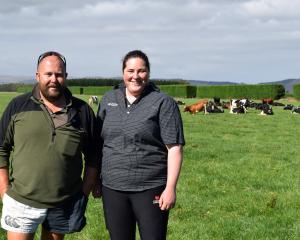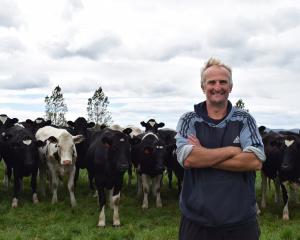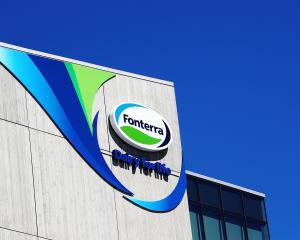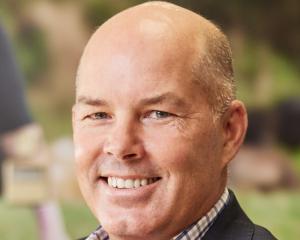
A DairyNZ wintering barn tour stopped at the dairy farm of the McKenzie family in Gorge Road last week.
Logan McKenzie was born and raised on the farm, which has been in his family for more than a century.
Mr McKenzie said a "shiny and new" composting barn was finished being built last month but no cattle had entered it yet.
"All we’ve had in here is a 10-year-old’s birthday party with six boys on motorbikes riding around in the dark."
About 360 "early calver" cows needed to finish eating a kale crop before they were moved inside the barn later this month.
A reason for building a composting barn was to have a dry area for calving.
He also wanted a barn that had internal feeding and a stand-off area for his herd to shelter in during inclement weather.
The due diligence on the right barn to build included visiting several farms, running a range of different barns, over a period of about six years.
"It wasn’t a quick decision by any means."
A contract to get a barn kitset from China was signed in November 2021.
The barn arrived in the new year and earthworks began in February last year.
All the concrete work was completed before the duck-shooting season last year.
The barn site being on a slope aided the decision to get a Clean Green Effluent Company system, including a greenwash scheme to clean the two feeding lanes.
"I like the greenwash concept and, talking to people, scraping the concrete seems like a fairly tedious job."
The woodchip bedding for the barn, consisting of sawdust on one side of the barn and shavings on the other side, arrived last month, days before his herd was dried off.

Consequently, some of the cows which would be calving later would be wintered on a paddock outside.
About 760 mixed-age cows would be calved in the barn.
The barn was designed so the two composting areas could be converted to include three sets of stalls on each side if required.
"If the composting wasn’t working or the woodchip was getting too expensive."
If the barn was converted, a new consent would be needed, but it would be able to house more cows.
However, he was "cautiously optimistic" the composting would work and a conversion would not be required in the future.
A consultant, Sonya Nicol of Southern Land and Water Planning, was used to gain the consent for the new barn.
He and his wife Mel were in an equity partnership with his parents Robert and Barbara McKenzie, of Cromwell.
The farm had an effective milking platform of about 380ha.
A plan this season was to calve about 1020 cows.
On average, each cow was targeted to produce more than 430kg of milk solids.
Cowsheds on the farm were a 36-bale rotary and a 54-bale rotary.
The low-input farm system included the use of 17kg of nitrogen per hectare last season.
"We aren’t anti-nitrogen but we don’t need to apply it."
He was pleased to a have a system with a low-stocking rate because of the price of nitrogen.
The low-stocking rate allowed them to produce a tonne of dry matter per hectare into supplementary feed , which was all they required.

The final stop on the tour last week was a composting barn featuring a concrete feed pad and a steel roof at Pāmu Landsdown in Romahapa, south of Balclutha.
DairyNZ extension partner for Western Southland Nathan Nelson said there were plans for a final tour stop, possible at at a SmartShelter barn in Southland next Tuesday.
Details
Composting barn with a steel structure on the McKenzies’ dairy farm.
Location: Gorge Road, about 10km south of Edendale. Built: 2023
Barn dimensions: 100.8m long and 36.5m wide
Bedding material: 500mm sawdust and 500mm bark chip base
Project manager: Logan McKenzie
Kit set structure: Advance Dairy Barns and Rodger Short, of Winton Engineering
Builder and concrete work: Nathan McDermott
Pipework: Donald Engineering
Effluent: Clean Green Effluent Company
Site works: Marshall Excavating
Consent process: Southern Land and Water Planning














